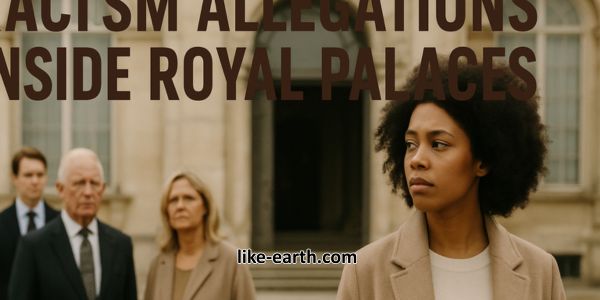Racism Allegations Inside Royal Palaces: A Controversial Legacy

“Racism allegations inside royal palaces: a controversial legacy” has sparked widespread discussion, challenging the long-standing perception of monarchies as neutral institutions. These seven words frame an increasingly visible issue, forcing global audiences to reexamine royal traditions and their alignment with modern values. As public scrutiny intensifies, royal families face demands for transparency and reform.
“`
Historic Context: Colonial Roots and Social Hierarchies
Many monarchies, especially in Europe, rose to prominence through colonization. The British Empire, for example, was built on the subjugation of diverse populations. This history is inseparable from the institutions that represented it — including royal families. Within palaces, racial hierarchies mirrored the colonial order.
Palace staff were often recruited along racial lines, with non-Europeans relegated to subservient roles. Royal events featured imagery and language reflective of racial superiority. While times have changed, echoes of this past remain embedded in institutional culture.
Modern Scandals That Brought Racism Into the Spotlight
Perhaps the most high-profile incident was the interview given by Prince Harry and Meghan Markle to Oprah Winfrey in 2021. Meghan alleged that a royal family member had raised concerns about the potential skin color of their unborn child. This explosive claim shook public trust in the British monarchy.
The palace responded with a cautious statement, expressing concern while committing to a private resolution. However, the damage had been done. The world saw this not as an isolated comment, but a symptom of a deeper cultural problem.
Media Coverage and Its Double Standards
Racism allegations inside royal palaces were also amplified by stark media bias. Meghan Markle, of mixed-race heritage, was often treated differently in the press compared to her white counterparts. Headlines that praised Kate Middleton were twisted to criticize Meghan for similar actions.
This unequal media portrayal fed public perception of an underlying prejudice not just in the press, but within the institution itself. Royal watchers and journalists questioned how much influence the palace had on shaping these narratives.
Institutional Resistance to Diversity
While modern monarchies have diversified their staff and support causes related to inclusion, criticisms persist. Symbolic gestures are not seen as enough. Many institutions fail to conduct internal audits or appoint diversity leaders at the highest levels.
Experts argue that true change requires openness to critique and structural reform. Without these, monarchies risk alienating younger, more diverse audiences who value equality and representation over ceremony and tradition.
Comparative Global Royal Reputations
The British Royal Family is not alone in facing such scrutiny. Other monarchies, such as those in Belgium and the Netherlands, have also dealt with post-colonial criticism. In Belgium, King Philippe publicly expressed regret for the atrocities committed in Congo.
These actions, though rare, show that royal institutions can respond to historical injustices. Yet, for many critics, apologies must be paired with real educational and policy initiatives to dismantle institutional racism within palace operations.
The Role of Public Opinion and Social Media
Social media has played a crucial role in highlighting racism allegations inside royal palaces. Hashtags like #AbolishTheMonarchy and #RoyalRacism trend globally. Platforms like Twitter and TikTok amplify voices that mainstream media often overlook.
These platforms offer marginalized communities a chance to speak out, share experiences, and demand accountability. As digital activism grows, monarchies can no longer operate behind closed doors. Transparency is now essential for legitimacy.
Monarchies’ Response and Future Outlook
Royal institutions have taken steps to address criticism. Initiatives include hiring more diverse staff, supporting anti-racism charities, and engaging in public dialogues. Still, skeptics argue these are reactive measures designed to preserve public relations rather than enact meaningful change.
To remain relevant, monarchies must evolve. That means listening, learning, and leading by example. Reform should not be a last resort — it should be a guiding principle.
Why These Allegations Matter Today
Racism allegations inside royal palaces strike at the heart of national identity. Monarchies represent tradition, but if those traditions perpetuate exclusion, they lose their moral authority. These controversies matter because they reflect broader societal challenges.
Addressing them is not just about protecting reputation. It’s about rebuilding trust, honoring diversity, and ensuring the values of today’s world are reflected in its oldest institutions.
Conclusion: Toward a Transparent and Inclusive Monarchy
In conclusion, the phrase “racism allegations inside royal palaces: a controversial legacy” summarizes a growing demand for truth and progress. The world watches not only what monarchies say but what they do. They must act decisively, embracing transparency and inclusion as pillars of their modern identity.
For more critical perspectives on global institutions and power dynamics, visit our official Like Earth website.
Stay updated by joining our discussions through the official WhatsApp channel.



